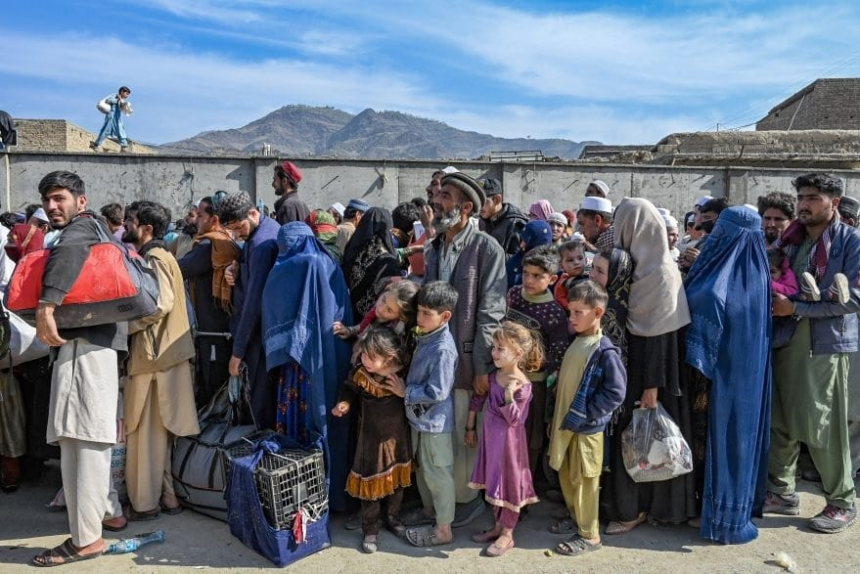RASC News Agency: A newly released report by the United Nations High Commissioner for Refugees (UNHCR) reveals that the majority of Afghanistani nationals who returned from Pakistan during the first half of 2024 face acute food insecurity. According to the findings, 57 percent of returnees lacked access to sufficient food, while 47 percent of families had no food reserves whatsoever. In 29 percent of cases, existing supplies lasted less than one week. The report, published on Tuesday, April 22, is based on interviews conducted with 2,868 returnees across 30 provinces of Afghanistan who were repatriated between January and June 2024. The comprehensive study addressed critical issues such as access to education, healthcare, clean drinking water, food, shelter, economic conditions, and personal security.
Findings indicate that more than 70 percent of participants reported earning less than $140 USD per month, placing them well below the poverty line. Furthermore, 60 percent stated they had been forced to borrow money to meet basic living expenses. Over 70 percent of respondents reported experiencing major psychological distress, which significantly diminished their quality of life. Regarding education, 33 percent of returnee children were unable to attend school or access alternative learning opportunities. Meanwhile, 17 percent of participants said they knew individuals who had been deported from Pakistan multiple times.
The report also shows that 86 percent of returnees have resettled in just ten provinces Kabul, Nangarhar, Kunduz, Kandahar, Balkh, Laghman, Baghlan, Logar, Helmand, and Jawzjan. However, only 37 percent have returned to their provinces of origin. While the UNHCR provided immediate cash assistance upon return, 38 percent of recipients stated that the aid lasted only two to three months, leaving them vulnerable to further hardship. Healthcare access remains alarmingly inadequate. Over 30 percent of returnees required medical care within six months of their return but were unable to obtain it. Female-headed households have faced particular hardship; 66 percent of them reported food insecurity, underscoring the compounded vulnerabilities faced by women under Taliban rule.
Housing conditions are equally dire. The report states that 71 percent of returnees are living in “inadequate” shelters. Only 15 percent are residing in their own homes, while 17 percent are being hosted by relatives. These figures highlight the combined impact of economic instability, lack of employment opportunities, and ongoing displacement. Additional challenges include the absence of official identity documentation, restricted access to education and healthcare for women and girls, and systemic violations of fundamental rights such as inheritance rights, freedom of movement, and access to social services. Returnees, especially women and children, remain disproportionately affected by the Taliban’s oppressive governance and the collapse of civil infrastructure.
With mass deportations from Pakistan set to intensify in April 2025, the UN has stressed the urgent need for systematic monitoring of returnee conditions, in-depth analysis of their lived experiences, and the implementation of reintegration programs tailored to their immediate needs. However, under the Taliban’s authoritarian rule where international agencies face operational constraints and civil liberties are consistently eroded meaningful reintegration remains increasingly difficult. The forced return of tens of thousands of vulnerable individuals to a nation plagued by governance failure, economic collapse, and widespread rights abuses raises profound concerns. Without decisive international engagement and pressure, the humanitarian consequences are likely to deepen, leaving returnees in a state of prolonged crisis and abandonment.






